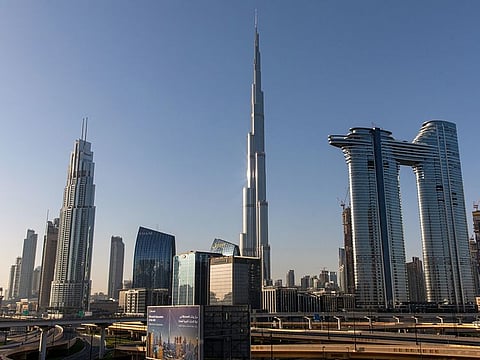Dubai private sector signals continued improvements business conditions in August
Job cuts quickened as companies continued to reduce capacity and employee costs

Also In This Package
Dubai: The latest Dubai Purchasing Managers’ Index (PMI) data signalled a further improvement in the performance of the non-oil private sector in August.
Overall gains in output levels extended from the upturn that was seen in July as business conditions continued to recover after the coronavirus disease 2019 (COVID-19) related lockdown.
However, data for August form IHS Markit showed the latest rise in output was the softest for three months, while growth in demand also slowed resulting in further job cuts and further lowering of selling prices.
The overall PMI posted above the 50 neutral mark for the second month running in August. At 50.9, the index was down from 51.7 in July, signalling a slower and only marginal improvement in business conditions, in part due to weaker rises in output and new business.
Rise in activity
“Business activity rose solidly, but the expansion was markedly weaker than in July, which will dent hopes of a swift recovery from the COVID-19 pandemic. Firms have not seen a full-scale uplift in demand to pre-pandemic levels and many commented that market conditions remained strongly depressed,” said David Owen, Economist at IHS Markit.
The PMI survey covers the Dubai non-oil private sector with additional sector data published for travel & tourism, wholesale & retail and construction. Across the three monitored sectors, Construction and Wholesale & Retail recorded softer growth in August. Travel & Tourism registered a downturn in business conditions, but this remained modest overall and the speed of decline was unchanged from July.
Data showed companies in Dubai expanded output further in August. The increase in activity was the third in as many months, albeit the slowest in this period. Where firms raised output, this was largely attributed to higher demand and an improved market situation following the easing of lockdown measures.
Surge in new work
New work increased solidly in August, with the rate of growth only slightly weaker than July’s eight-month high. Nevertheless, this marked the first time since April where the respective index has weakened, suggesting a slowing recovery in the economy.
Firms found that despite a rise in sales, customer demand remained subdued in general. Meanwhile, job cuts at Dubai firms quickened as companies continued to reduce capacity and employee costs.
The fall in workforce numbers was broadly in line with the average over the six-month sequence of decline.
“Demand weakness drove a further cut to jobs in August, the sixth in as many months and one that was broadly level with the trend over this COVID-affected period. Business optimism weakened, with some firms expecting activity to improve but others citing that the unpredictability of the recovery could lead to business closures,” said Owen.
Sentiment toward future output also weakened in August, dropping to the lowest in three months. However, it remained stronger than at the height of lockdown measures in April.
Input costs ticked up midway through the third quarter, although the rate of inflation was weak. At the same time, firms put further pressure on margins by lowering selling prices in a bid to improve new business. The decline in charges was the quickest for ten months, and sharp overall.
Sign up for the Daily Briefing
Get the latest news and updates straight to your inbox








